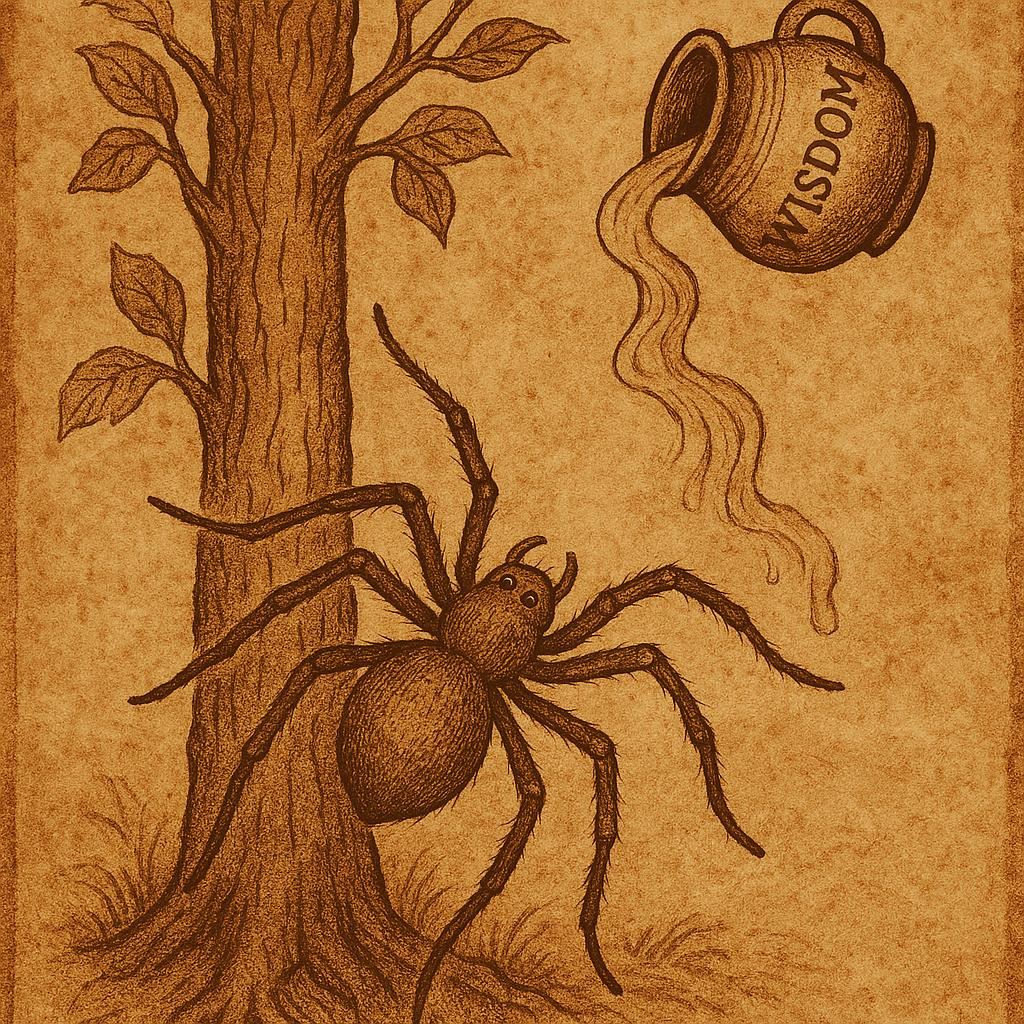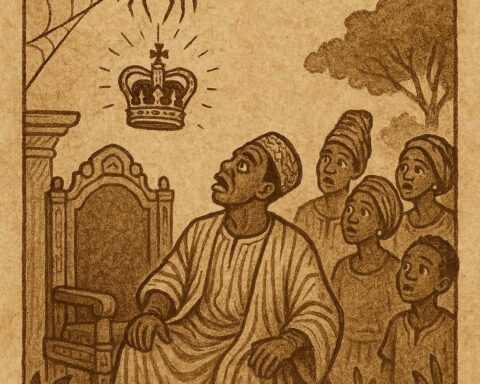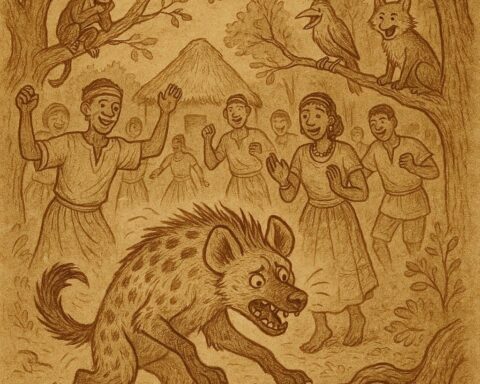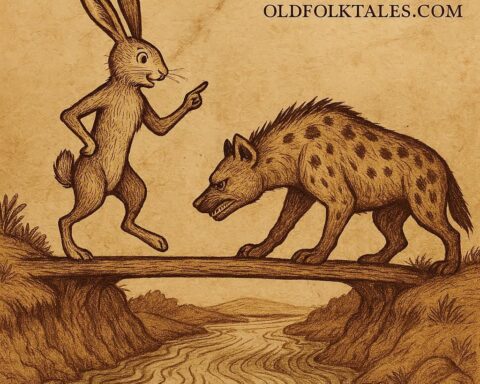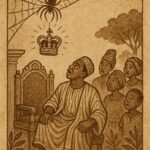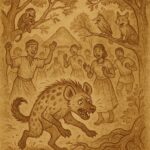Long ago in the villages of southern Togo there lived the clever spider who was known for his endless tricks. Among all the creatures of the land, no one could outwit him. He had a way of twisting words, deceiving friends, and finding shortcuts in every task. His mind was sharp, but his heart was filled with greed. The spider did not want to share knowledge with anyone else. He wanted to become the wisest and most powerful of all beings.
One evening the spider heard whispers among the elders that the spirits had scattered pieces of wisdom across the earth. Some were hidden in the rivers, others in the trees, some in the sky, and some deep underground. Whoever could gather them all would control knowledge itself. The spider’s eight eyes glittered with excitement. He thought to himself, If I collect every fragment of wisdom and lock it inside a pot, I will be greater than kings and chiefs. Everyone will bow before me, for they will know nothing compared to me.
READ THIS: The Tortoise and the Leopard’s Feast
So the spider began his secret journey. He crept into the forest at night, searching for hidden wisdom. He listened to the winds and plucked the secrets carried by the leaves. He crouched beside the rivers and snatched the whispers of flowing water. He scaled the highest trees and pulled down the knowledge hidden among the branches. He even dug into the soil to gather the wisdom of roots and stones. Day after day, night after night, he filled his pot with treasures of thought.
The spider’s pot grew heavier and heavier. At last he was convinced that every drop of wisdom in the world had been sealed inside. He laughed to himself, I alone am wise. The world will bow to me. But another thought soon troubled him. Where could he hide this pot so that no other creature would ever find it? If anyone discovered it, they might steal his wisdom and ruin his plan.
After thinking for a long time, the spider decided the safest place would be at the very top of a tall tree. He tied the pot tightly with ropes and hung it around his belly. Then he set out to climb the tallest tree in the forest. His legs shook as he pulled himself upward. The pot swung heavily against his body, making each step more difficult. The higher he climbed, the more the pot got in the way.
Down below, his young son watched in silence. The boy tilted his head and finally called out, Father, why do you tie the pot in front of you? If you place it on your back, you will climb more easily.
The spider froze. Anger boiled inside him. He thought, How can my little son, who has no pot of wisdom, know more than I do? I have gathered the knowledge of the earth, the sky, the waters, and the forest. Yet he speaks a truth that I did not see.
In a moment of rage, the spider lost his grip. The heavy pot slipped, crashed against the trunk, and burst open on the ground. Pieces of wisdom scattered in every direction. The river carried some away. The winds blew others far across the fields. Birds picked some up and dropped them in villages. Soon men, women, and children found fragments of wisdom shining at their feet.
The spider crawled down in despair. His plan was ruined. No longer would he be the sole master of knowledge. Everyone now had a share. Some people had a little wisdom for farming, others for speaking, some for healing, and others for guiding the community. No single creature could hold it all. Wisdom became the gift of all humankind.
From that day, the spider remained clever, but he was no longer the wisest of all. Whenever he saw his son, he remembered the bitter truth that even a child can know something an elder does not. And that is why among the Ewe people of Togo it is said that wisdom belongs to everyone, not to one greedy hand.
Moral Lesson: The story of the spider who tried to steal wisdom teaches us that greed leads to loss, while humility brings understanding. Knowledge cannot be locked away by one person, for true wisdom is meant to be shared among all people.
Knowledge Check
What was the spider’s main goal in the story of The Spider Who Tried to Steal Wisdom?
Answer: The spider wanted to gather all the wisdom in the world into a pot and keep it for himself so that he would become more powerful than anyone else.How did the spider collect wisdom from the world around him?
Answer: He gathered it from rivers, trees, winds, roots, and other parts of nature until his pot was filled.Why did the spider want to hide the pot of wisdom at the top of a tree?
Answer: He believed the top of the tree was the safest place to keep the pot so no one could steal it.What advice did the spider’s son give him during his climb?
Answer: The son told him to tie the pot on his back instead of his front so that climbing would be easier.What happened when the spider became angry at his son’s wisdom?
Answer: He slipped, the pot broke, and all the wisdom scattered across the land for everyone to find.What is the main lesson of The Spider Who Tried to Steal Wisdom?
Answer: The main lesson is that wisdom is not meant for one person alone, and greed can cause us to lose what we try to keep selfishly.
Source: Ewe folktale, southern Togo. Collected by Zinta Konrad in Ewe Comic Heroes: Trickster Tales in Togo (2015).
